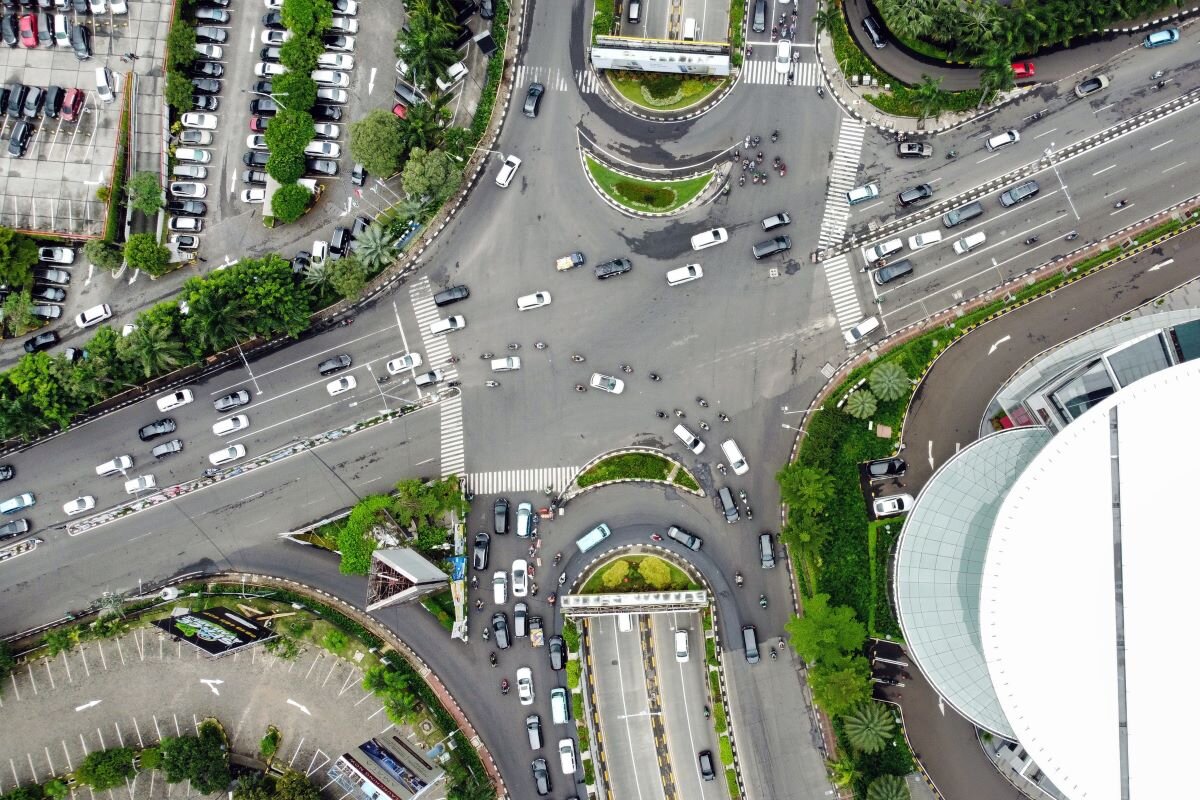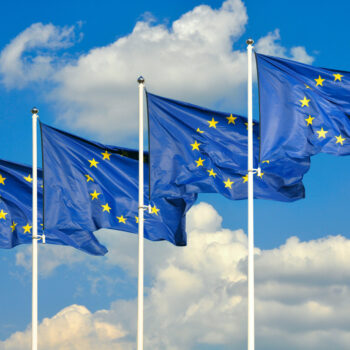Prabowo’s new presidency in Jakarta and the reappointment of Ursula von der Leyen as president of the European Commission represents an enormous opportunity for recasting relations between Indonesia and the EU. Amid recent trade tensions, there has been a show of good will on exploring how climate goals can be aligned and mutual benefits achieved. Both Indonesia and the EU could benefit from increased partnership and more intentional engagement on clean economy opportunities.
Indonesia’s economic growth plans hinge on growing its clean technology industries such as renewables and electrification. But the transition remains complicated, with the economy and national energy security still deeply reliant on fossil fuels. With a stated ambition for 8% growth within the first three years of his presidency, and an eye on OECD accession, Prabowo could see trade with the EU as a pillar for achieving his country’s development targets. However, politics and institutions remain the largest obstacles to swift, ambitious climate action; and this is no different in Indonesia.
With its natural resources, market potential and geostrategic position, Indonesia represents a potential strategic partner for the EU. Collaboration could be forged through mutual climate action. As the world’s third largest democracy, Indonesia represents a significant trade and investment opportunity for the EU. Indonesia’s economic and development plan is well-aligned to industries that support the global energy transition, such as export of critical minerals, electric vehicle manufacturing, and the development of clean technology supply chains. On climate objectives Indonesia and the EU need to address three areas:
- How increased climate ambition can recast the relationship between Jakarta and Brussels towards better alignment on climate.
- How Indonesia can better leverage engagement with the EU to support its climate commitments and economic development more broadly.
- How Indonesia can shape and support the EU in its own climate goals.
Better alignment on climate
Can increased ambition create enough momentum to overcome political and structural barriers to climate change? This is the question at the heart of reactions to President Prabowo’s recent announcement at the G20 summit in November. He noted that his government is planning to retire all coal and other fossil fuel power plants within the next 15 years, and to achieve net zero emissions by 2050.
Prabowo also announced a plan to simultaneously increase the country’s renewable energy capacity, and to take advantage of Indonesia’s abundant geothermal resources. This would put Indonesia well ahead of its previous targets and shows a willingness for regional leadership on climate. It could also create a path to reset relationships under this new government, moving past recent bilateral challenges.
Positive momentum in this relationship can also come from the EU playing a more prominent role in the Just Energy Transition Partnership (JETP), and other transition funding. With the US entering a new administration in 2025 that is likely to scale back its international engagement, the JETP commitment is likely to shift from the US to EU members, particularly France.
Indonesia can maximise benefits from an EU partnership
The EU has strongly signalled that it is looking to create new policies that will create additional collaboration with emerging economies, particularly Indonesia. These policies will focus on creating collaborative trade relationships, and offering more supportive frameworks around these policies. For example, the newly announced Clean Trade and Investment Partnerships will be one such avenue for mutually beneficial industrial collaboration.
These partnerships would offer a framework for clean industrial collaboration on areas such as clean energy, critical raw materials, cleantech trade and investments; all of these are a priority for Indonesia’s economy. They take a different approach to previous trade tools like Comprehensive Economic Partnership Agreements by focusing on more bespoke interventions in certain sectors and supply chains, aiming to leverage private investments strategically via public support schemes. These demonstrate the willingness of the new Commission under Von der Leyen to focus on bilateral trade partnerships that are “win-win” and include a stronger political dimension.
Indonesia can support the EU in its energy transition
There is enormous potential for Indonesia to support the EU in its green transition. Two significant opportunities include:
Indonesia is likely to increase its influence as an alternative supplier of critical minerals and has grown its domestic industry for electric vehicles and related green technology. The EU has a need for a stable and ethical supply of minerals. Recent geopolitical tensions and the global cleantech “race”, have demonstrated the potential cost of depending on a single supplier for critical materials and components. This is an area for potential alignment between the EU and Indonesia (as explored above), despite Indonesia’s recent export bans on some unprocessed minerals.
In conjunction with increased willingness to invest and partner with Indonesia, the EU can position itself as a viable and greener alternative to Chinese investment. For example, there is significant opportunity for the EU to provide green investments in smelters that adhere to green standards. Indonesia’s economy is highly integrated with China, but there is a political will to diversify. Similarly, the EU is keen to diversify its own supply away from the US in light of planned tariffs under the Trump presidency.
Indonesia has potential for supporting the EU to create better policy and frameworks, through more involvement in governance and international networks. For example, networks or forums that set implementation guidance or international standards for the green transition, such as the International Transition Plan Network. There’s a real opportunity for the EU to learn from Indonesia’s experience as an emerging economy, to reflect a more realistic view for its policy implementation.
In addition, key EU green policies such as the Carbon Border Adjustment Mechanism (CBAM) could also incorporate more local input from trading partners, noting that many line ministries in Indonesia are now making adjustments to comply with this regulation. Indonesia can offer regional context with greater sectoral specificity, broadening understanding of the real economy challenges within emerging economies. This can help ensure that EU and international policies have more well-rounded perspectives.
There is untapped potential in the relationship between the EU and Indonesia, particularly on trade and clean technology. After a year of elections, the world is at an inflection point for ongoing diplomatic and trade relations. Momentum from this shifting geopolitical reality can be harnessed to develop a mutually beneficial partnership between the EU and Indonesia.
E3G’s Centre for Political Economy and Climate Change published a recent assessment of Indonesia’s political economy, analysing the country’s specific barriers and opportunities to climate action. We invite you to join the Climate Transformation Hub and access the country profile for Indonesia here.


